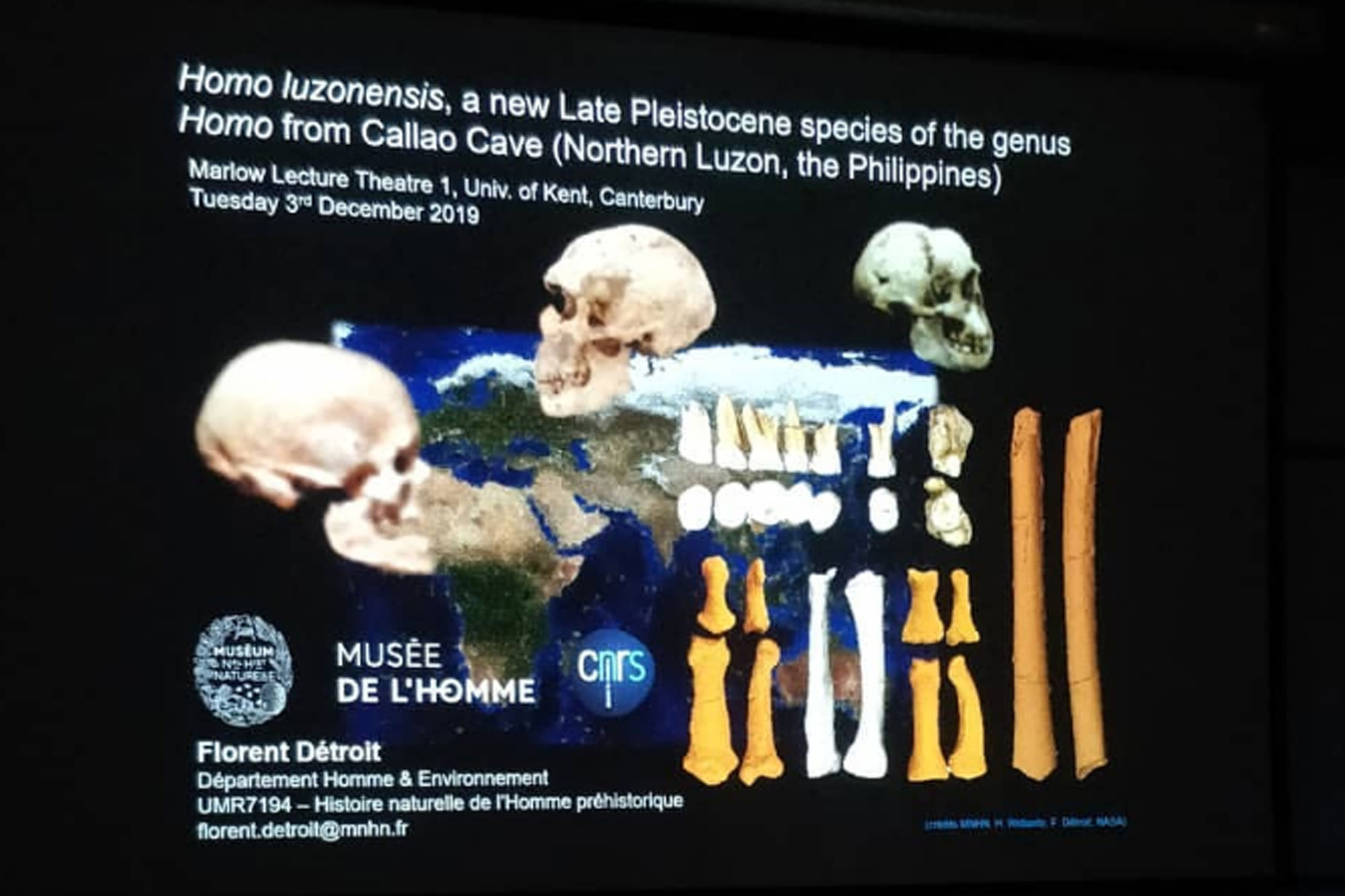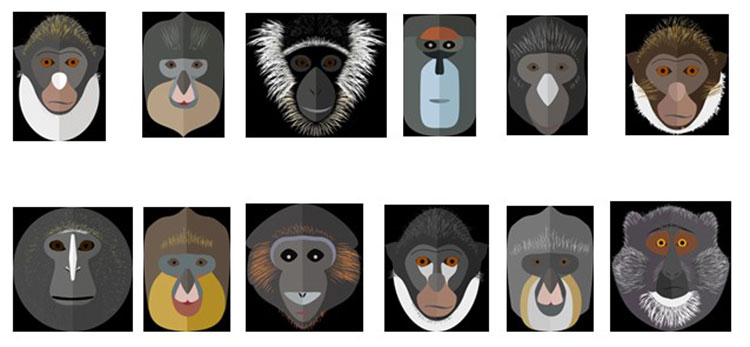
Each term, the Biological Anthropology Seminar Series is organised at the School of Anthropology and Conservation to discuss current research with UK and international scientists specialising in a variety of topics in the discipline, such as primatology, human behaviour and psychology, evolutionary anthropology, archaeology and forensic bioarchaeology.
Over the course of this year, we had a fantastic set of speakers delivering a set of diverse and interesting seminars, well attended by a broad audience comprising undergraduate and postgraduate PhD students, post-doctoral researcers and staff members. The organisers of the series, Dr Ameline Bardo and Dr Mona Le Luyer, invited twelve researchers from a global line-up, from presentations looking at how a mongoose is changing taphonomic research, what the Longshanks mouse can tell us about human evolution, understanding variation in primate appearance using a sensory ecological approach and using gait analysis and 3D modelling to build evolutionary hypotheses.

The seminar delivered by Dr Florent Détroit, from the Muséum national d’Histoire naturelle, on December 3rd, 2019, entitled ‘Homo luzonensis, a new species of the genus Homo from the Late Pleistocene of Callao Cave (Northern Luzon, the Philippines)’, took place as an open lecture attended by more than 50 people. Both organisers received a lot of positive feedback on this event, with people saying that it was great to be able to meet and talk with a researcher that took part in the archaeological excavation and subsequent discovery of a new species of early human.
Unfortunately, we had to postpone the talk of Professor Sarah Elton from Durham University due to the COVID-19 pandemic, but she has kindly agreed to come during the 2020-21 academic year to talk about ‘Exploring evolutionary processes in the radiation of Old World monkeys’.
All are welcome when the seminar series returns this autumn! It is a great opportunity to discover lots of various topics in Biological Anthropology and to meet and talk with researchers from different fields.
Many thanks again to all our fantastic speakers this year:
- Dr Alessandro Felder (Royal Veterinary College): Bone tissue in all shapes and sizes.
- Dr Susannah Thorpe (University of Birmingham): Translating behavioural ecology research into improved quality of life for zoo and sanctuary great apes.
- Dr James Higham (New York University, US): Understanding variation in primate appearance: a sensory ecology approach.
- Professor Lynda Boothroyd (Durham University): Cultural and ecological predictors of face and body ideals in the context of rapid globalisation.
- Dr Eline Schotsmans (University of Wollongong, Australia & University of Bordeaux, France): Conducting forensic experiments at the Australian Facility for Taphonomic Experimental Research (AFTER) aiming to improve archaeo-anthropological methods and increase our understanding of funerary sequences in the Neolithic Near East.
- Dr Florent Détroit (The Museum National d’Histoire Naturelle, France): Homo luzonensis, a new species of the genus Homo from the Late Pleistocene of Callao Cave (Northern Luzon, the Philippines).
- Dr Nicholas Marquez-Grant (Cranfield University, UK): Forensic Anthropology and the Identification of the Missing.
- Dr Tara Chapman (Royal Belgian Institute of Natural Sciences and Faculty of Medicine, Université Libre de Bruxelles): The use of gait analysis and 3D modelling to build evolutionary hypotheses.
- Dr Campbell Rolian (University of Calgary, Canada): What the Longshanks mouse can tell us about human evolution.
- Dr Chris Basu (Royal Veterinary College): Biplanar fluoroscopy and musculoskeletal modelling of jumping frogs.
- Dr Devin Finaughty (University of Kent): Rikki Tikki Tavi’s Story: how a mongoose is changing the way we conduct taphonomic research.